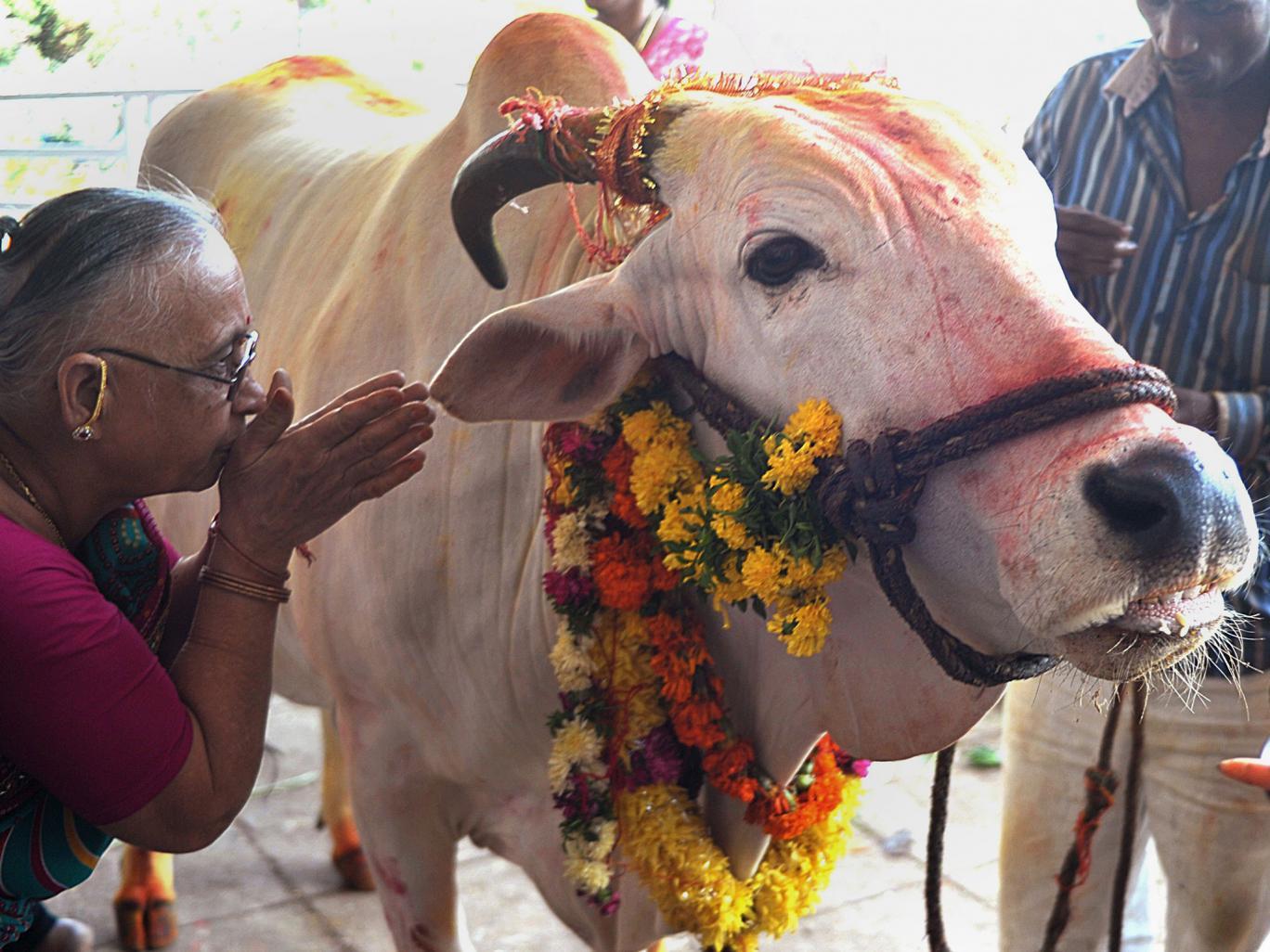Indian politician defends mob of 'cow vigilantes' who killed a Muslim cattle farmer for transporting them
'Blame lies with both sides, says minister, after hundreds of angry Hindus turn on men over 'sacred' animals

Your support helps us to tell the story
From reproductive rights to climate change to Big Tech, The Independent is on the ground when the story is developing. Whether it's investigating the financials of Elon Musk's pro-Trump PAC or producing our latest documentary, 'The A Word', which shines a light on the American women fighting for reproductive rights, we know how important it is to parse out the facts from the messaging.
At such a critical moment in US history, we need reporters on the ground. Your donation allows us to keep sending journalists to speak to both sides of the story.
The Independent is trusted by Americans across the entire political spectrum. And unlike many other quality news outlets, we choose not to lock Americans out of our reporting and analysis with paywalls. We believe quality journalism should be available to everyone, paid for by those who can afford it.
Your support makes all the difference.A senior Indian politician has defended a mob of angry Hindus who killed a man for transporting cattle, saying he was partly to blame.
Rajasthan Home Minister Gulab Chand Kataria defended the hundreds of “gaurakshaks” or “cow vigilantes” who attacked 15 Muslim men in the northern Indian district of Alwar while they were moving the cows, which are sacred in the Hindu religion.
“One person died due to the beating. Police have registered cases against people smuggling the cows and also over the death of the man,” he told Indian media.
“The blame lies with both sides. When they know that cow smuggling is banned in Rajasthan and there is a law against it, why were they doing it?”
“However, taking law in one's hand is wrong. Police will act against both sides,” he added.
The attack took place on the Behror highway in Alwar, about 150 km from Delhi when at least 15 men from Haryana were attacked by vigilantes, apparently after they showed documents to prove that they had bought the cows legally from a livestock fair in Jaipur.
Fifty-year-old Pehlu Khan died two days after the brutal beating at the weekend. He is said to have received multiple rib fractures after the angry mob turned on him.
Mr Khan's uncle, Husain Khan, told the BBC his nephew was not a butcher but a cattle farmer, and had bought the cows legally for his dairy business.
Rajasthan police are believed to have arrested the attacked men for “smuggling” even when they produced government receipts that allowed them to ferry the cows.
The other men beaten in the attack are reportedly recovering in hospital.
No arrests have yet been made but police have registered Mr Khan’s death as a murder enquiry.
Slaughtering cows is illegal in several Indian states and squads of vigilantes patrol the highways inspecting livestock trains for any evidence of the animals.
At least ten Muslim men are believed to have been killed in similar vigilante incidents on suspicion of cow smuggling or eating beef in the past two years.
In 2015, a man was lynched by his neighbours on the basis of a rumour that he had slaughtered a cow. Police later said he had eaten mutton.
Critics claim the vigilantes have been encouraged by the election in 2014 of Prime Minister Nerandra Modi’s Hindu nationalist party Bharatiya Janata Party.
Many states started actively enforcing bans on cow slaughter after his election and Mr Modi has been accused of being hesitant to condemn the actions of the vigilantes.
Hindus comprise 80 per cent of India’s 1.2 billion population, while Muslims make up just over 14 per cent. The country is also home to significant Sikh, Christian and Budhist minorities.
Join our commenting forum
Join thought-provoking conversations, follow other Independent readers and see their replies
Comments